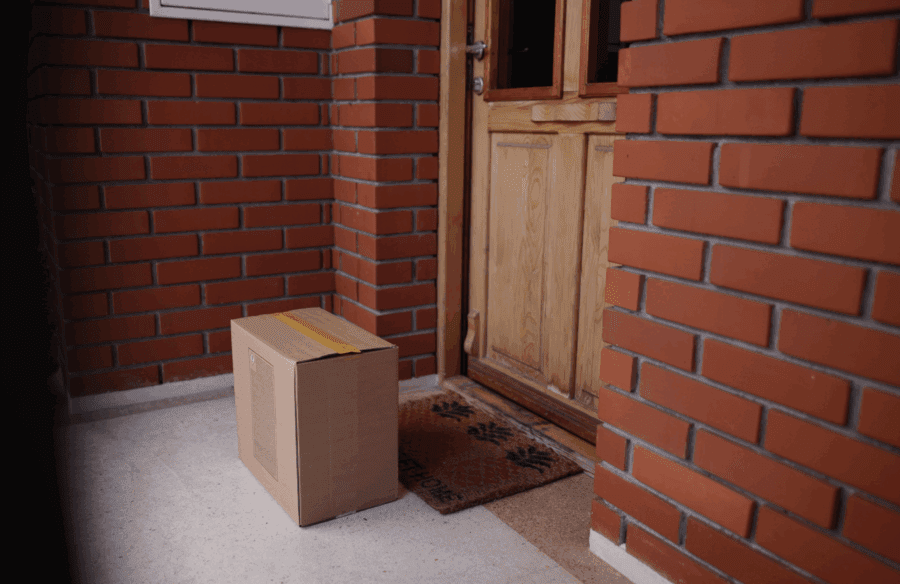
Open Locker Network
Rethinking Hospital Deliveries to Support NHS Productivity Goals
Written by: Parcel Pending
5 Min Read
Published: April 28, 2025
NHS hospitals across the UK are under increasing strain, facing financial pressures, workforce shortages, and a growing demand for services1,2. With patient numbers rising and resources stretched, hospitals are looking for ways to improve productivity, support staff wellbeing, and enhance patient experience3.
While no single solution can solve every challenge, small, practical changes can help ease pressure and make a tangible difference to how hospitals operate. One overlooked area is the way parcels and personal deliveries are managed across hospital sites – a seemingly minor detail, but one that can influence patient experience, staff wellbeing, and day-to-day hospital operations.
In this article, we explore some of the key pressures facing NHS hospitals – and how rethinking the way everyday deliveries are handled could support improvements across the board.
Enhancing Patient Experience
Public satisfaction with the NHS has fallen to its lowest level in decades, with recent surveys showing that just 21% of people are satisfied with the way the health service runs4. This marks a steep drop from 60% in 2019, reflecting growing public concern around long wait times and the overall quality of care5.
At the same time, research suggests that positive patient experiences are linked to better health outcomes, increased satisfaction, and greater trust in healthcare services6,7. Therefore, feeling supported and cared for during a hospital stay can make a significant difference to patients’ overall wellbeing.
For inpatients, particularly those admitted for longer periods, receiving personal deliveries from friends and family can provide a sense of comfort and normality. While not all hospitals are able to accept parcels for patients, those that do often rely on manual processes to manage these deliveries, with items routed through busy reception areas before being distributed to the wards. This adds pressure to hospital staff and increases the risk of items being delayed, lost, or misplaced.
By offering self-service delivery solutions, such as parcel lockers, hospitals can provide a secure means for receiving essentials, gifts, and personal items, reducing reliance on hospital staff while ensuring patients have easy access to deliveries. This small change can help create a more homely environment during what can often be a difficult time.
Improved Hospital Operations
Hospital receptions and front-of-house teams are already stretched, balancing a wide range of responsibilities across busy and complex sites. Handling personal and third-party deliveries often adds another layer of pressure, taking up time that could be better spent supporting core hospital functions. Storing parcels manually can also pose security challenges and consume valuable space.
Even a relatively simple solution, such as centralising the point of collection for all non-medical deliveries, can have a positive operational impact. It can help reduce pressure on busy front-of-house teams, cut down on the number of lost parcels, and improve overall organisation on site – all without diverting staff away from frontline care.
A Simple Way to Support Busy Frontline Teams
Staff experience and engagement have a clear impact on the quality of care delivered8. Research shows that high levels of staff satisfaction in the NHS are associated with improved patient outcomes and satisfaction, better use of resources, and lower levels of avoidable patient mortality in acute settings9.
But for many healthcare workers, basic day-to-day tasks, such as collecting a personal parcel, can be a source of stress. Long shifts, irregular hours, and limited breaks mean that home deliveries aren’t always practical, and collecting parcels from the post office or a local parcel shop often means an additional trip after an already busy day.
Having a reliable, 24/7 collection point available on hospital grounds can offer a simple, flexible solution, allowing staff to pick up deliveries at their convenience and making everyday tasks easier to manage. It’s a small change, but one that can have a positive impact on overall staff satisfaction, helping employees feel supported and valued in their working environment.
Supporting NHS Net Zero Targets
The NHS has made a strong commitment to becoming the world’s first net zero health service, with a clear plan to reduce emissions across all areas of operations – including supply chains, delivery logistics, and transport10,11. Reducing unnecessary vehicle movements across hospital grounds is a key part of this plan12.
Consolidating last-mile deliveries to a single, central location – rather than having multiple delivery vehicles accessing different parts of a hospital site – can help reduce congestion, emissions, and disruption. Fewer trips also mean fewer failed delivery attempts and less pressure on facilities teams, contributing to a more sustainable and efficient environment for everyone.
A Simple, Low-Effort Solution
In a complex healthcare environment where every small improvement matters, smart parcel lockers offer a simple but effective way to make a real impact. By hosting a smart locker, hospital can enhance operational efficiency while improving convenience for both staff and patients.
With Parcel Pending by Quadient, you can enjoy the benefits of a comprehensive parcel locker solution without any investment required. We take care of the installation, maintenance, and ongoing support of the lockers, so your team can focus on what matters most – delivering excellent care.
Interested in becoming a host? Find out how to bring Open Network parcel lockers to your hospital – get in touch here.
Sources:
1. House of Commons Library. Capacity pressures in health and social care in England. www.parliament.uk. July 16, 2024.
2. NHS Confederation. The Darzi investigation: what you need to know. www.nhsconfed.org. September 12, 2024.
3. NHS England. NHS Long Term Workforce Plan. www.england.nhs.uk. September 3, 2024.
4. The Guardian. Patient satisfaction with NHS has hit record low of 21%, survey finds. www.theguardian.com. April 2, 2025.
5. BBC. Public satisfaction with NHS hits record low. www.bbc.co.uk. April 2, 2025.
6. BMJ Open. A systematic review of evidence on the links between patient experience and clinical safety and effectiveness. www.bmjopen.bmj.com. October 25, 2017.
7. NHS Race & Health Observatory. Patient Experience and Trust in NHS Primary Care. www.nhsrho.org. March 7, 2025.
8. The King’s Fund. What does the NHS Staff Survey 2024 really tell us? www.kingsfund.org.uk. March 20, 2025.
9. Ibid.
10. NHS England. NHS becomes the world’s first national health system to commit to become ‘carbon net zero’, backed by clear deliverables and milestones. www.england.nhs.uk. October 1, 2020.
11. NHS England. Delivering a ‘Net Zero’ National Health Service. www.england.nhs.uk. n/d.
12. Ibid.



